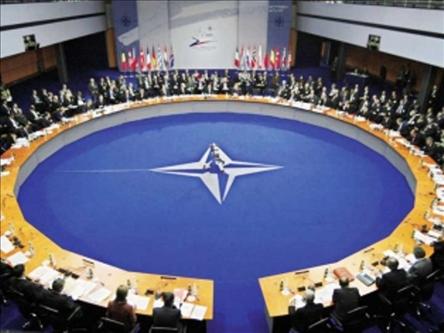ISLAMABAD: Pakistan’s prime minister, struggling to keep his party’s grip on power, sought support from opposition leaders Monday after a coalition partner said it would defect and threatened to bring down the government.
The political turmoil could distract the government from its alliance with the US against Islamist militants in neighboring Afghanistan, though security is largely the purview of the powerful military.
The crisis also all but guarantees lawmakers will make no progress anytime soon on solving the critical economic problems that have forced the country to rely on $11 billion in loans from the International Monetary Fund.
For ordinary Pakistanis, it’s inflation, chronic power outages and other daily hardships that are the biggest concern. Failure to make gains on such domestic issues does not bode well for the long-term stability of this impoverished, nuclear-armed nation.
On New Year’s eve, the government announced hikes in gas and heating oil prices, angering many — and giving the Muttahida Qaumi Movement another reason to part ways with the ruling Pakistan People’s Party.
"The petrol bomb the government has dropped on the people of Pakistan has forced our party to part ways with such insane decisions," said Faisal Subzwari, an MQM leader.
The party had already said it was quitting the Cabinet last week. Another, smaller party, the Jamiat Ulema Islam, announced in December it would switch to the opposition. Without the two, the ruling coalition will fall short of the 172 seats needed to keep a majority.
Ruling party leaders said they were trying to work out their differences with the MQM, and Prime Minister Yousuf Raza Gilani said he was confident the government could maintain its majority.
The head of the Pakistan Muslim League-Q, Chaudry Shujaat Hussain, said he was slated to see Gilani later Monday. State-run Pakistan Television said Gilani was talking to a top official in the Pakistan Muslim League-N, the lead opposition party.
If the ruling party cannot hold together its majority coalition or form a new one, it could face a no-confidence vote and midterm elections. Analysts said the ruling party had only weeks, if not days, to try to prevent the government’s collapse.
However, poor relations between the MQM and the PML-N, headed by Nawaz Sharif, give the ruling party some breathing space.
Sharif’s party also would be loath to try to take the reins of a new government at such a difficult time, said Hasan Askari-Rizvi, a political analyst.
The IMF has demanded that Pakistan significantly reform its economy in order to keep the loan program going. The international assistance took on added importance after the massive floods of late 2010.
But the economic reforms, notably a revised general sales tax, are unpopular and have given the opposition — as well as the MQM and the JUI — something to rail against. Many analysts speculate the parties could be using the crisis as a tactic to win concessions from the ruling party.
The lack of progress and political bickering has upset many Pakistanis.
"There is no electricity, no gas, no jobs and they are fighting one another," said Arif Fasiullah, 35, of the central city of Multan, in a recent interview. "They do not pass any legislation. They just do dirty politics."
Tahir Khan, 25, a laborer in the northwest city of Peshawar, said it has become harder to feed his family of six. The government should concentrate on issues like health, education and other aid instead of political bickering, he said.
"I do not care what one leader says about the other. I am more concerned what leader gives what to us," he said.
The PPP took power in February 2008 in elections that brought Pakistan out of nearly a decade of military rule. It rode to power on a wave of sympathy after its leader, Benazir Bhutto, was assassinated.
But its popularity has slipped as Pakistan has grappled with severe economic problems and frequent militant attacks.
The PML-N holds the second largest number of seats in parliament and is believed to be the most popular party in the country.
It is more aligned with religious conservatives than the PPP is and has not been as vocal in opposing the Taliban — a position that could cause some discomfort in Washington, which needs Pakistan’s help in ending the war in neighboring Afghanistan.
One unclear factor is where the military stands on the latest political battles.
Army chief Gen. Ashfaq Parvez Kayani is reported to be unhappy with the current leadership, and not enthusiastic about its possible replacement.
The army, under the leadership of retired Gen. Pervez Musharraf, ousted the PML-N’s Sharif, who was then prime minister, in a coup in 1999. But Kayani has not indicated any interest in staging a coup if the current government is toppled.
Additional reporting by Ashraf, Khalid Tanveer and Riaz Khan.

